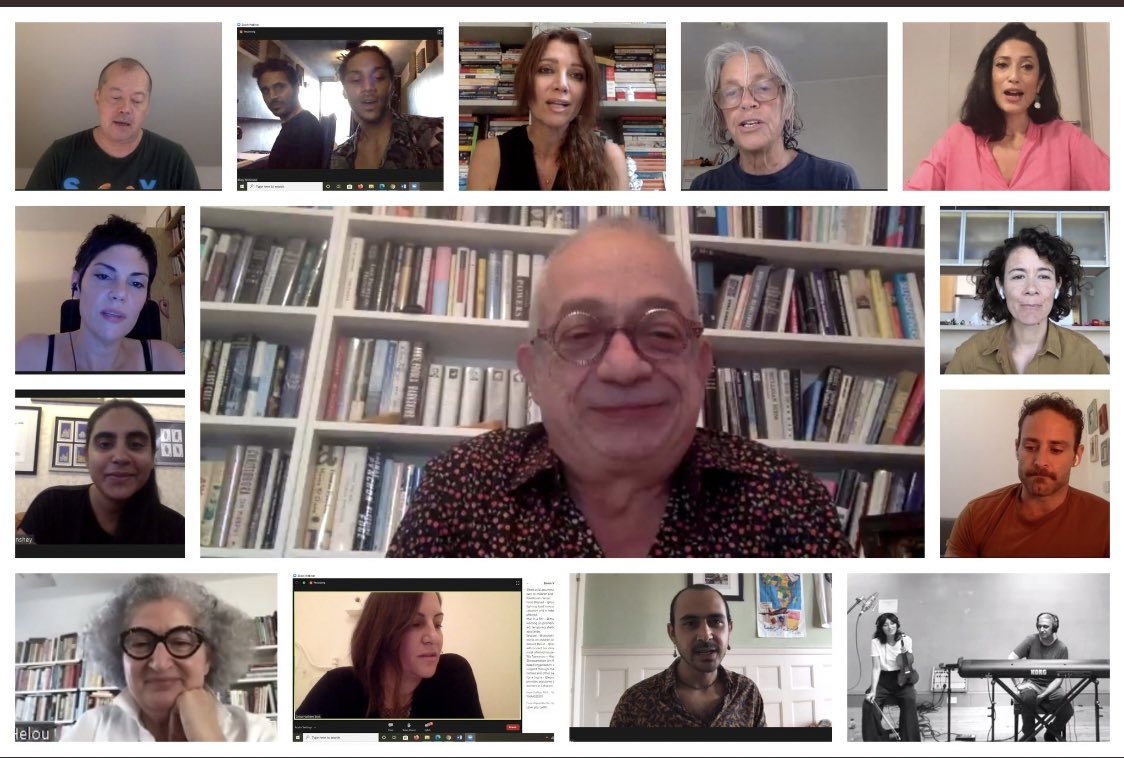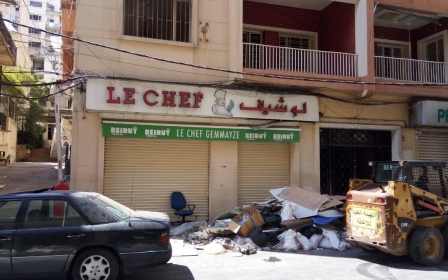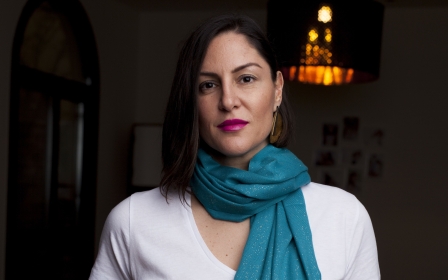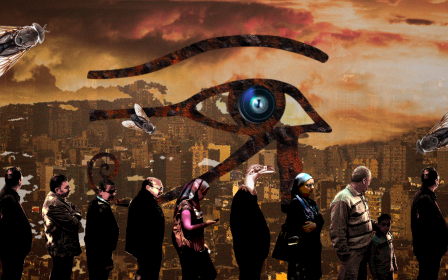'Is there a Lebanon to save?' Writers reflect on Beirut blast

More than a dozen authors and musicians came together Wednesday night for Li Beirut (For Beirut), an extraordinary Zoom event organised by researcher-lawyer Menaal Munshey and writer Fatima Bhutto to raise funds for relief organisations in Beirut.
For many writers and performers, emotions were raw. It had been just eight days since the explosions at the Beirut port that killed at least 200, injured thousands, and left an estimated 300,000 people homeless.
Wednesday night’s talks and performances were by turns caustically angry, breezily conversational, informational, grief-struck, and filled with a painful hope.
Audience members logged in from around the world. And while Zoom often diffuses the shared emotional power of an event, the audience of Li Beirut was able to connect over social media. And it was seemingly the moments of music and levity that audience members found hardest to bear. “It’s as if we’ve forgotten to sing and dance,” poet Zeina Hashem Beck tweeted. “How devastating is that?”
New MEE newsletter: Jerusalem Dispatch
Sign up to get the latest insights and analysis on Israel-Palestine, alongside Turkey Unpacked and other MEE newsletters
Organiser Menaal Munshey has been working in Beirut for the last two years but she was in London during the explosion. “I didn’t know how to process this pain,” Munshey said, in her introduction. “And this felt like the only meaningful way to react.”
Munshey, who plans to travel back to Beirut on 15 August, said the event was an important way to gather ready cash. Although donations through online channels are also important, these can be held up by Lebanon’s banks. With donations sent online, organisations “will be able to access the money, but it will not be immediately and it will not be in the amount that they wish to withdraw. It will be in the amount that the bank wishes to give them and at the time that the bank decides.”
On the other hand, “Your money, that you have donated to us, is going to be given in cash, in hand, to these organisations for them to make a real difference starting now.”
Dreams of food and revenge
The evening’s first speaker was acclaimed Lebanese novelist Rabih Alameddine, author of An Unnecessary Woman (2014) and The Angel of History (2016), who spoke with Lebanese chef and food historian Anissa Helou.
Alameddine said that, at first, he had intended to read from one of his literary works. But “I’m a little too angry,” he said. “Rage is probably the more appropriate word.”
Instead of a reading, Alameddine and Helou had a conversation that veered between food memories and food revenge. Alameddine prompted: “Anissa darling, if we can imagine all these. . . politicians in jail, what would we feed them?”
This sounded familiar (also @rabihalameddine and Anissa Helou spoke about what they would cook for all the politicians they jailed) pic.twitter.com/NMzW9eD1RJ
— fatima bhutto (@fbhutto) August 12, 2020
Helou began by inventing a dish for Lebanese President Michel Aoun that had a base of Egyptian feseekh, or fermented fish. She added: “I will let the fish ferment until it becomes a disgusting mushy thing. I will sprinkle it with Naga jolokia, which at one stage was the hottest pepper in the world. Then I would make a tahina sauce, but with more Naga jolokia in the tahina, so I would make a fire in his mouth… Because he’s done a lot to destroy our country, starting in the civil war and finishing with this catastrophe.”
After this, they imagined a drinkable meal for Lebanon’s speaker of parliament, Nabih Berri. For others, Helou said, “We could also have a really amazing meal right out of their reach.”
Alameddine reflected that the people in Beirut have changed a lot since he was a teenager in the city. The homophobia and strict patriarchal attitudes that caused him and Helou to leave the city have shifted. “But the government has never been able to catch up,” he said. “Because it does not suit its purpose.”
The inadequacy of memory
A reading by the American poet Eileen Myles was followed by Lebanese writer and translator Lina Mounzer, speaking from her home in Beirut.
“The only positive thing I can say is that, with nerves flayed raw, every kindness, too, is felt a thousand times over,” she said.
'What feels saddest to me is that the before is not very distinguishable. The story remains so much the same'
- Lina Mounzer, writer and translator
Mounzer read part of an unpublished essay called Psychogeography as the working title. She had been working on the essay long before 4 August, adding: “What feels saddest to me is that the before is not very distinguishable. The story remains so much the same.”
The essay, which maps layers of history and the body, has elements of folktale that make the reader feel both in and out of time.
The section Mounzer read from opened, “Once upon a time, long ago, during the war, my grandmother told me that it had once been possible to walk from West Beirut, where we lived, to East Beirut, the other side.”
The essay lays out maps of Beirut’s history against Mounzer’s lived experience. For her and others, life in Beirut has not run straight:
“It seems to me that war disrupts time itself, knocking it out of alignment, so that it no longer proceeds along a straightforward path. Those who make war know this, they understand the shadow formula that defines the relationship of space to time. They understand that material ruin creates temporal chaos. ‘We’re going to bomb them back into the Middle Ages, the seventh century, the Stone Age.’ In reality, we are simply bombed out of the present, and into some spinning place where the imagined past is the only thing that anchors us to any possible iterations of the future. The pieces of the city become unstuck from one another, and can never be fit together in the same way.”
As she read, Mounzer’s voice rose when she spoke of the myth of Beirut as rising endlessly from the ashes, a city full of phoenixes. “It allows them to believe that war is just a temporary sort of destruction, not the sort that leaves cracks and fissures in time itself, weakening the bedrock on which reality is founded.”
We were in tears listening to @warghetti pic.twitter.com/OwIkQSi87c
— fatima bhutto (@fbhutto) August 12, 2020
The essay moved from wartime to after the war, when the city was rebuilt by the same vulture-like men who conducted the war. After, Mounzer said: "For a long time, it was easy for us to mistake neoliberalism for progress. Its clean antiseptic spaces, its formalized bureaucracies, its insistence on the cold logic of capital.
"All of that looked, to a population emerging shaken from the mouldy damp of underground shelters, like the civilised life we’d been dreaming of in the dark, all those years. A life organised around the principle of making violence invisible to the naked eye.”
Mounzer ended her essay by invoking the inadequacy of memory: “I’m afraid we did not remember enough, I’m afraid we did not remember enough, and not in the right ways.”
A very strong love
Mounzer’s reading was followed by fiction writers Saleem Haddad and Alexander Chee, in which Haddad read an excerpt from a forthcoming short story about political and erotic desire that he wrote after the protests in Lebanon in October 2019.
Speaking to Chee after the reading, Haddad said that, as a Palestinian, “I've always had a very complicated relationship with the city... It wasn't really until the protests that I felt this very strong love.”
Haddad and Chee were followed by Bluey Robinson’s moving musical set, and a conversation between Fatima Bhutto and actor Laithi Nakli, who plays Uncle Nasseem in the popular show Ramy.
After that came Lebanese poet Zeina Hashem Beck, who said, like Mounzer: “It’s been a difficult week, and the only possible comfort has been people.”
We will upload the event on YouTube soon so hou have to wait to hear @zeinabeck read in Arabic but till then ... pic.twitter.com/bKjiUzAGql
— fatima bhutto (@fbhutto) August 12, 2020
Hashem Beck read four poems: Ghazal: With Prayer, After the Explosions, Blue / أزرق, and Dear Brecht.
“After the Explosions,” she said, was written in 2013 for Tripoli, “which is my home city in Lebanon. In August 2013, two massive mosque explosions happened in Tripoli and two days before the mosque explosions, we lost my cousin to a shooting on the street in Tripoli. So I think I can confirm that I don’t like August.”
'Perhaps in this life, it's always too soon to heal'
- Zeina Hashem Beck, poet
The last, Dear Brecht, was also written after an event in Tripoli, the shooting of protester Fawwaz al-Samman.
It comes in response to Brecht’s line, “In the dark times/Will there also be singing? Yes, there will also be singing/About the dark times.”
Echoing the raw emotions of many performers, Hashem Beck read: "Perhaps in this life, it's always too soon to heal."
The event, which went on for nearly three hours, also had talks and readings by British-Turkish novelist Elif Shafak, poet Zulfikar Ali Bhutto, and New York Times reporter Maria Abi-Habib. The latter spoke with Munshey about relief efforts, international forces, and the possibilities for Lebanon’s future.
"Is there a Lebanon to save?” Abi-Habib asked. “I think there is. But it's rapidly disappearing."
The final performers of the evening were musicians Nitin Sawhney and Anna Phoebe. They performed, among other things, the iconic Fairouz song for which the event was named: Li Beirut.
The money raised by the event will go to eight organisations working to heal the city. They are: Unite Lebanon Youth Project, which supports educational and recreational projects; the vocational-training project Beit Atfal Assumoud; two food-security projects, Food Blessed and Iftar In a Box; Sesobel, which works with children with disabilities; Rebuild Beirut, which is working to repair homes; Wa Taawanoo, supporting basic needs; and Egna Legna, which provides assistance to the country’s migrant domestic workers.
Middle East Eye delivers independent and unrivalled coverage and analysis of the Middle East, North Africa and beyond. To learn more about republishing this content and the associated fees, please fill out this form. More about MEE can be found here.




